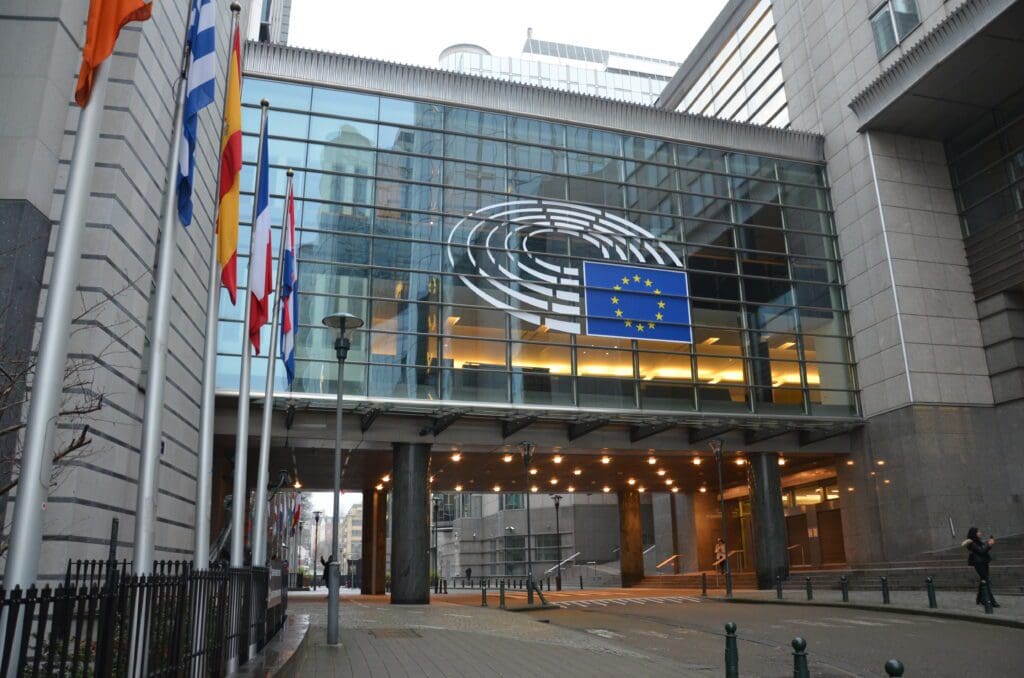President of Poland’s Constitutional Court Bogdan Święczkowski has initiated legal proceedings against Prime Minister Donald Tusk and several high-ranking Polish politicians, judges, and prosecutors on suspicion of attempting a coup d’état.
During a press conference on Wednesday, Święczkowski announced that he had signed a 60-page criminal complaint at the end of January, accusing Tusk, his government ministers, Speaker of the Sejm Szymon Hołownia, Senate President Małgorzata Kidawa-Błońska, as well as ruling coalition members of both houses of parliament, and several judges and prosecutors of criminal offences.
According to the head of the highest court, these individuals have been ‘active in an organized criminal group’ since the government transition in December 2023, with the goal of changing Poland’s constitutional order and disrupting the functioning of the Constitutional Court and other key institutions, including the National Council of Justice (KRS) and the Supreme Court.
Tusk, leader of the governing Civic Coalition (CO) along with Poland 2050, the Polish People’s Party, and the New Left, does not recognize the Constitutional Court as a legitimate body, arguing that it was stacked with Law and Justice (PiS) loyalists during the previous governments. One of Tusk’s main objectives is to reshape the judiciary to align with his political agenda.
The European Commission fully supports these efforts, as it was Brussels that previously pressured the PiS government to make changes to Poland’s judiciary. The Commission even froze billions of euros in funding to Poland in an effort to force political change—something that ultimately materialized. Since Tusk took office, EU funds have been flowing to Warsaw without obstacles.
Tusk’s Crackdown on Rule of Law
In fact, Brussels is passively observing as Tusk employs methods reminiscent of Soviet times. Since assuming power in December 2023, his progressive government has launched attacks on Polish state media and conservative newspapers, using police force to suppress dissenting voices. Tusk has also escalated his campaign against political opponents, persecuting them in ways that openly contradict the so-called ‘rule of law’ standards that the EU claims to uphold.
Former Polish Justice Minister Zbigniew Ziobro gave an interview to Hungarian outlet Mandiner in early January, during which he described Tusk as a ‘vindictive man’ who seeks to eliminate his political opponents by any means, including blocking the Constitutional Court, forcibly taking control of public media, and cutting off funding for opposition parties. ‘By promising to restore the rule of law, Tusk is doing the opposite: he is dismantling it,’ Ziobro stated.
‘By promising to restore the rule of law, Tusk is doing the opposite: he is dismantling it’
Due to the deteriorating rule of law situation in Poland and facing politically motivated criminal charges, Hungary granted former Deputy Justice Minister Marcin Romanowski political asylum in December 2024. The move further strained Hungarian–Polish relations, which have been at a low point since Tusk’s election. In response to Budapest’s decision, the Tusk government launched a diplomatic offensive against Hungary, excluding the Hungarian Ambassador to Warsaw from the opening ceremony of Poland’s EU presidency and advising ministries and state institutions not to receive the ambassador or attend events where he is present, for an undefined period. Poland also intends to launch legal action against Hungary at the European Court of Justice (ECJ).
Tusk, however, appeared unbothered by the announcement from the head of the Constitutional Court. In a video posted on X, where he is seen playing ping-pong, he laughed off a staff member’s question about the allegations, replying: ‘Give it a rest. We have important things to do around here. We’ll deal with this later.’
Meanwhile, PiS leader Jarosław Kaczyński welcomed Święczkowski’s decision, stating that it was an appropriate response to the situation in the country. ‘State institutions, including public television and the prosecutor’s office, have been taken over by force,’ he said, adding that ‘we are dealing with a situation where the law is not really being enforced.’
Donald Tusk on X (formerly Twitter): "Zamach stanu 🤣 pic.twitter.com/h9STStBt1E / X"
Zamach stanu 🤣 pic.twitter.com/h9STStBt1E
Opposition Growing Stronger Heading Pivotal Election
Hungarian Minister for Foreign Affairs and Trade Péter Szijjártó visited Warsaw on Tuesday, where he met with nationalist party coalition Konfederacja’s vice-president and Deputy Speaker of the Sejm Krzysztof Bosak. Addressing concerns over Tusk’s authoritarian governance, Szijjártó wrote in a Facebook post: ‘Opposition MPs are arrested, political purges are taking place in the courts, the state prosecutor has been illegally replaced, and public television has been seized by force.’
He added that if a conservative, patriotic government had committed even a fraction of these actions, Brussels would have already launched multiple rule of law procedures. ‘But now that it is a government absolutely loyal to Brussels, no one has a bad word to say.’
Szijjártó Péter
Botrányos dolgok történnek Lengyelországban. Ellenzéki képviselőket tartóztatnak le, politikai tisztogatás zajlik a bíróságokon, törvénytelen módon váltották le az államügyészt és erőszakosan...
Szijjártó also noted that under these circumstances, it is no surprise that the opposition in Poland is growing stronger. The National Movement, member of Konfederacja, joined the right-wing European Parliamentary political group Patriots for Europe (PfE) last autumn. ‘It is a great gain for the Patriots that we are now part of the same group in the European Parliament, working together against migration, for sovereignty, for freedom, for the defence of Christian values, and for families,’ Szijjártó concluded.
Poland is gearing up for a presidential election in May—a vote that will shape not only the country’s future but also that of Europe. The presidency is currently held by PiS-backed Andrzej Duda, who secured an unexpected victory in 2015 and a more predictable re-election in 2020 against Donald Tusk’s candidate, Warsaw Mayor Rafał Trzaskowski. Now, as Duda works to push back against Tusk’s efforts to restructure public media and the judiciary, the stakes are high. Should this conservative stronghold fall, Tusk would face no significant obstacles in advancing his vision of making Poland a vassal state of Brussels. Such a shift would also deal a significant blow to the European patriotic movement, which is striving to take over a continent ruined by years of leftist and progressive governance.
Trzaskowski is preparing for his third shot at the presidency, while Duda, having served two terms, is ineligible to run. In response, PiS has thrown its support behind Polish historian Karol Nawrocki. Initially polling at a low level, Nawrocki’s campaign bears similarities to that of 2015, when Trzaskowski led Duda by 15 per cent just two weeks before the election—only for the gap to narrow dramatically, and at the end, to turn in favour of Duda. The trend appears to be repeating itself. According to Opinia24’s latest poll, Trzaskowski leads with 32 per cent, while Nawrocki has climbed to 24 per cent. In the pollster’s previous survey, the mayor was at 35.3 per cent and Nawrocki at 22.1 per cent, marking a five-percentage-point reduction in the difference between the two candidates.
Related articles:







